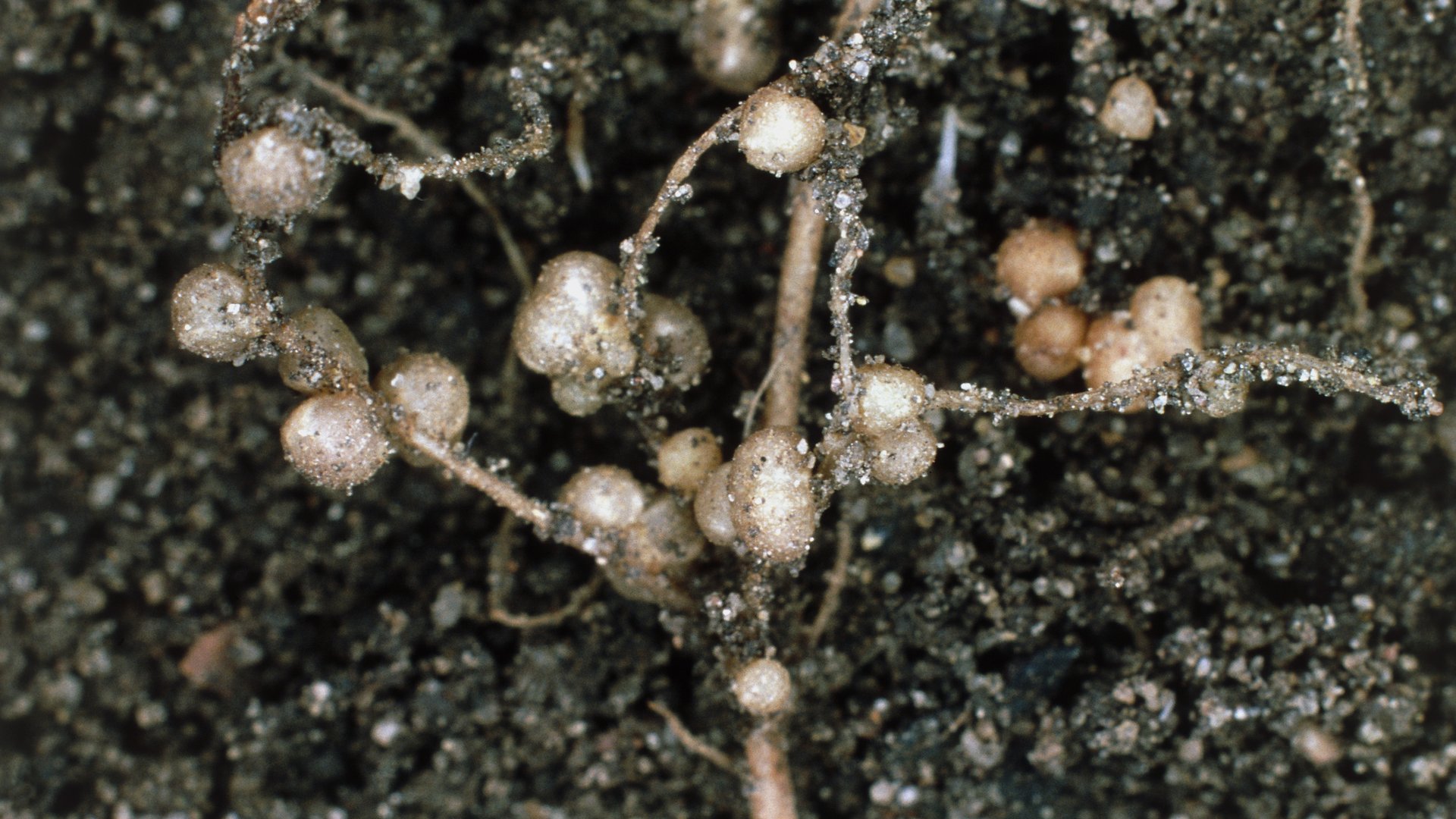Rhizobium is a genus of bacteria associated with the formation of root nodules on plants. These bacteria live in symbiosis with legumes. They take in nitrogen from the atmosphere and pass it on to the plant, allowing it to grow in soil low in nitrogen.
Rhizobium is a genus of bacteria associated with the formation of root nodules on plants. These bacteria live in symbiosis with legumes. They take in nitrogen from the atmosphere and pass it on to the plant, allowing it to grow in soil low in nitrogen.
Living barter
The bacteria enter the roots of legumes through, for example, root hairs or tears. They cause an infection which result in nodules on the roots. The Rhizobium bacteria take in nitrogen from the atmosphere and turn it into ammonia (NH3), a kind of natural fertiliser for the plant. The plant provides the Rhizobium bacteria sugars in return, which are produced through photosynthesis.
No more artificial fertiliser?
Nitrogen is often the scarcest nutrient in the soil. That is why it is used more than any other fertiliser in agriculture. The overuse of artificial fertiliser can lead to serious environmental problems and so a lot of research is being done into the Rhizobium bacteria. Researchers hope to discover methods to increase the productivity of plants and lessen the reliance on artificial fertiliser.

